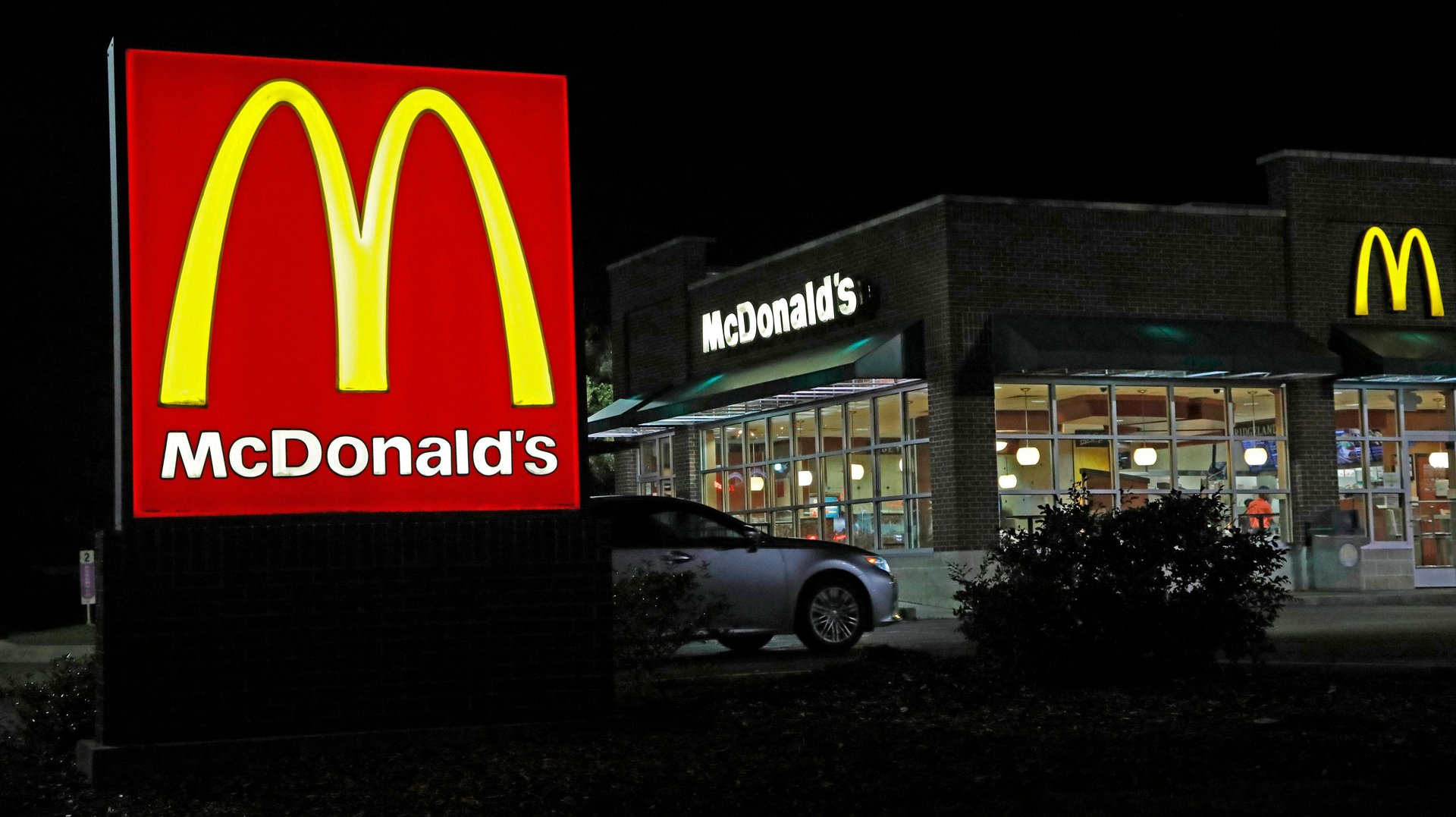A New York court ruled that a McDonald’s restaurant wasn’t one of its managers’ ‘place of business’
Your workplace may be the place where you do business, but according to some US courts it’s not your “place of business” unless you’re the boss.


Your workplace may be the place where you do business, but according to some US courts it’s not your “place of business” unless you’re the boss.
The People v. Akeem Wallace (pdf), a recent New York Court of Appeals decision, affirms this fine distinction in a strange case arising from an unusual shooting at a McDonald’s’ restaurant in 2013. The opinion highlights the unique privileges afforded owners—even those who break the law.
Here’s what happened: Wallace was a “swing manager”—or manager-in-training—at a McDonald’s in Buffalo, New York, where he accidentally shot himself with an unlicensed firearm in his pocket. The gun went off when he stood up from his seat. Only he was hurt. Police showed up after someone reported gunshots but Wallace had fled the scene, giving his gun to his cousin, and ordering colleagues to deny that anything had gone awry, which they did, initially.
At a nearby hospital, however, staff reported to police that someone in a McDonald’s uniform was being treated for a gunshot wound. When cops went to the hospital and questioned Wallace, he claimed he was shot at a bus stop on the way to work. But an intrepid officer went back to the fast-food restaurant, spotted bloodstains, and pressed employees for the truth. They admitted the shooting.
Wallace was soon charged and convicted of felony possession of an unlicensed firearm. He argued on appeal that his offense was merely a misdemeanor, based on an exception in New York law that lessens the penalty for unlicensed gun possession in one’s “place of business.” The exception exists in recognition of a merchant’s special need for protection, though it undermines New York’s strict gun licensing mandates somewhat.
The case turns on the definition of a “place of business” and just who qualifies for this exception. Wallace said he should qualify because he was a manager at work; McDonald’s was his place of business. The trial court disagreed, as did an appeals court panel. But one dissenting judge on the panel saw Wallace’s point of view, writing that the statute was unambiguous and that if “the legislature had wanted to limit the places of business to which the exception…applies, it could easily have done so.”
The dissenting judge allowed Wallace to appeal to New York’s highest court. There, the manager’s arguments failed again. The Court of Appeals looked to separate gun licensing rules and reasoned that the gun possession exception doesn’t apply to every employee, just “when such person is a merchant, storekeeper, or principal operator” of an establishment. In other words, McDonald’s wasn’t his place of business, even if it was where Wallace worked, and even if he was a manager.
At first blush, this outcome seems fair enough. We don’t want anyone carrying an unlicensed gun on the job, manager or not. Still, the decision is interesting because it shows courts will sometimes go to lengths to read privileges for business owners into seemingly plain language, all while denying these same legal protections to employees.